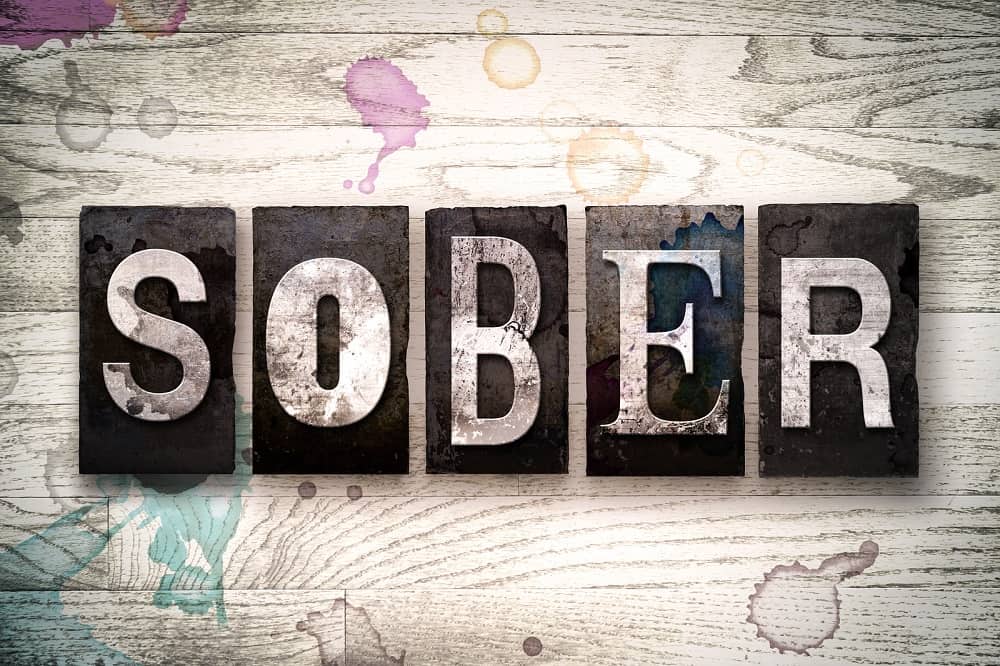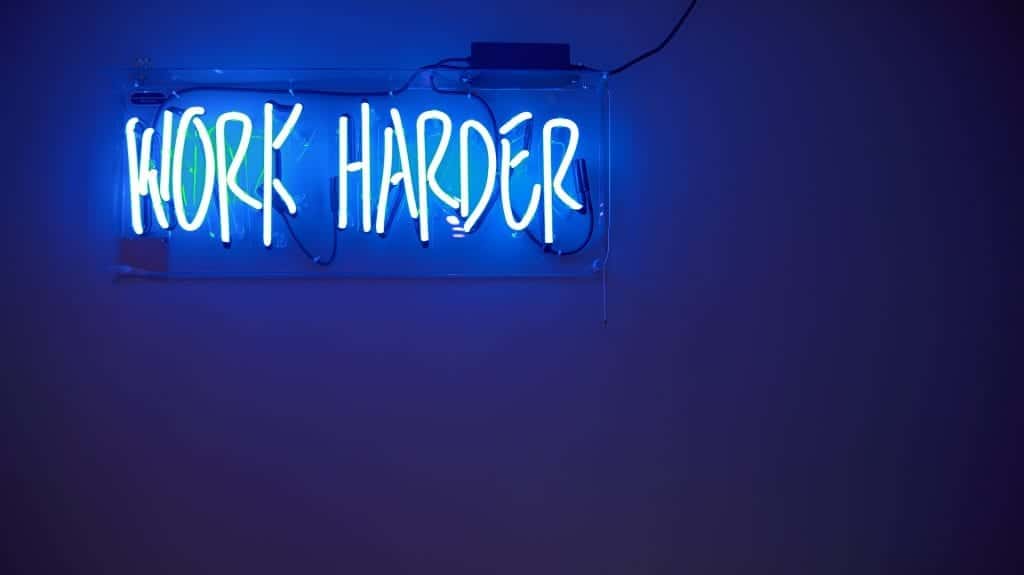I used to be addicted to drugs. You name it – I would smoke it, snort it, drink it, or pop it.
My Name is Tim – I Am a Recovering Addict
I mean I did everything – cocaine, meth, benzos, prescription painkillers, and heroin. Anything that would change the way I felt. Basically, there came a point in my life where I could not function with or without drugs. On September 27, 2005, I hit bottom. I went to rehab and got sober. In more than 13 years, I have not found it necessary to take a drink or use drugs. For that, I am truly grateful.
“Get your loved one the help they need. Our substance use disorder program accepts many health insurance plans, this is our residential program.”
Substituting One Addiction for Another is Common in Recovery
This is not the harrowing tale of how I wound up in drug rehab. I want to tell you what happened in the years after I got clean. I believe mine is a story worth telling. I don’t think we talk enough about how recovering addicts will often substitute one addiction for another when they stop using. Doing this can be dangerous and cause the same kind of destruction as substance abuse. Overcoming an addiction to drugs is a major undertaking. Those who get sober should celebrate themselves for gaining victory over their illness. However, programs like Alcoholics Anonymous and Narcotics Anonymous only acknowledge substance abuse. When someone remains abstinent from drugs and alcohol, it can be easy to overlook other destructive behaviors that are causing powerlessness and unmanageability.
Obsession and Compulsion Drive Addictive Behaviors
At some point, most people in recovery will engage in some other type of obsessive and compulsive activities during sobriety. This is more common than you might think. Once the drugs are out of the equation, we are susceptible to getting addicted to certain behaviors that make us feel good. These include sex, gambling, binge-eating, shopping, and other process addictions. For me, it was work I want to share honestly about how my work addiction almost killed me. It is my sincere hope that telling my story will help others find freedom from workaholism. Plus, I will offer some solutions. I ask that you keep an open mind and remain honest with yourself as you read this article. You may see yourself in my story.
In My Sobriety, I Had Something to Prove
In those last days of my addiction to drugs, I was completely useless. I lost several jobs due to absenteeism because it was impossible to go to work when I was dope sick. I got high at work. I nodded out at my desk. I made a lot of expensive mistakes. Quite frankly, I saw my job as a means to support my drug habit. I was only in it for the paycheck. I had no interest in actually being a good employee. When I got sober, I had a lot to prove. I was motivated to show my wife and kids that I could be a good provider. I needed to know that I was capable of being a professional people respected. I knew what failure felt like. I felt like it was time to finally experience success.
Finding My Identity in My Professional Achievements
For so long, I identified myself as an addict. Even in sobriety, I was considered a recovering addict. I longed to define myself by something other than drug addiction. So, I set out the be a stellar performer in my field. I threw myself into work and gave it everything I had. I was in sales. It was a highly competitive, high stress, power-hungry environment driven by greed. (Think Wolf of Wall Street.) I fit right in. I took the manipulation skills I learned as an addict and put them to what I thought was a good use. I was making buckets of money, which made me feel invincible. I worked 80 hours a week. I refused to take vacations. I was up every morning at 4 a.m. and went to bed every night at eleven. I was wired on adrenaline and I couldn’t get enough. I thought I had finally found myself. What I didn’t realize at the time was that I was completely lost. My addiction to work almost cost me everything I had.
The Downward Spiral – The Nightmare of Work Addiction
After five years of hardcore workaholism, my health and my relationships were in serious trouble – not that I knew it at the time. My wife was constantly telling me that I needed to spend more time with her and the kids. It felt like nagging. After all, I was bringing in the big bucks. Why was she complaining? My sponsor told me I needed to find balance. But, I had been clean for years. What did he know? He lived in an apartment and was up to his eyeballs in debt. My doctor told me numerous times that I needed to lower the stress in my life. At 47 years old, I had high blood pressure, migraine headaches, and extreme anxiety, which was putting stress on my heart. Plus, I was hospitalized twice for collapsing at work from exhaustion and dehydration. But, I didn’t listen. I was 10-feet tall and bulletproof. There was no stopping me. I was just as driven to work as I was in my pursuit of the next fix during my addiction to drugs. As far as I was concerned, I didn’t have a problem.
“We treat both addiction and co-occurring disorders and accept many health insurance plans. Take a look at our inpatient program.”
A Rude Awakening – Hitting Bottom and Ending the Insanity
At the young age of 48, I had a massive heart attack while I was at work. I completely blacked out and fell on the floor, breaking my nose in the process. I woke up in ICU with a tube down my throat after major heart surgery. I was in the hospital for three months. During that time, my wife took my phone away from me because I was obsessed with making phone calls and checking emails. I needed to stay in touch with what was going on at the office. Now, I am so grateful she did that. It gave me time to think. I realized that I was killing myself for a job that was given my position to a junior executive before I was even out of heart surgery. I was an absentee father and husband. I had plenty of money in the bank, but I was completely bankrupt in every other area of my life. It was a wakeup call.
Getting Into Recovery and Finding Freedom
It still amazes me when I look back at just how sick I was in my work addiction. I was in total denial. I was consumed by my job. Outside of the office, I had no real identity. Once again, I was confronted with the idea that I was an addict. I had no idea who I was without the insanity of addiction running my life. I quit my job and committed to my wife that I would not work for one full year. I spent that time in therapy, getting involved in the lives of my kids, and falling in love with my wife again. I also worked the 12 Steps of N.A. on my work addiction. During that year, I decided to change careers. I went back to school and got a Master’s in Counseling. Today, I run a successful counseling practice out of my home. I have never been happier. So, there you have it – the condensed version of my story about work addiction. I have shared my experience with you. Now let’s talk more about workaholism and how affects individuals and their families. I hope to educate you on the reality of this condition and how devastating it can be.
What is a Workaholic?
There is no clinical definition of workaholism. It is not included in the American Psychiatric Association’s Diagnostic and Statistical Manual (DSM), which recognizes mental disorders. However, most addiction experts agree that workaholism is a type of process addiction. Other examples of process addictions include gambling, shopping, and sex. Nevertheless, I believe it is important to define the word “workaholic.” In order for someone to recover from this condition, they must first understand what it is. Barbara Killinger, Ph.D. and author of the book Workaholics: The Respectable Addicts, defines a workaholic “as a work-obsessed individual who gradually becomes emotionally crippled and addicted to power and control in a compulsive drive to gain approval and public recognition of success.” This explanation may be too technical for some. For me, a workaholic is someone who is driven by an obsessive and compulsive cycle to work, no matter what the cost.
Work Addiction is Just as Real as Drug Addiction
One recent estimate suggests that about 10 percent of U.S. adults qualify as workaholics. This is probably a low estimate. In today’s economy, he who clocks out last wins. Workaholism often drives the American workplace. Executives everywhere are competing for highly sought positions, approval from the boss, perks, and the satisfaction of personal achievement. This drives work addiction. More hours, more bonuses, more respect, more…MORE! MORE! Sound familiar? “More” is the battle cry of an addict. There is never enough coke, meth, or heroin to satisfy someone in the throes of drug addiction. This is also true of someone who runs themselves ragged to maximize the rush of workaholism.
Workaholics are Celebrated, Not Stigmatized
The thing is, people who are addicted to work are not viewed as addicts. The country stigmatizes people who are addicted to drugs like alcohol, crystal meth, or cocaine. They are often looked down upon as weak, pathetic, disgusting, and pitiful. Not so for the guy neglecting his family in the name of the 80-hour workweek – you know, the one who spends his life in hot pursuit of the almighty dollar? The workaholic is revered, celebrated, promoted, and awarded for his efforts. He is granted a higher salary, a bigger expense account, and all-paid vacations to Tahiti. Corporate America applauds the guy who works long hours and gets the job done. He is touted as a hard worker, a motivated individual, and a stellar performer. Unfortunately, the cultural acceptance of workaholism makes this condition difficult to identify and treat. Most work addicts (I know from personal experience) do not see anything wrong with their behavior. They honestly think people who don’t live a face-paced, work-obsessed lifestyle are lazy.
“We accept many health insurance plans. Get your life back in order, take a look at our residential program.”
Are You a Workaholic? A Self-Assessment Quiz
Denial is the powerful driving force behind addiction. Most drug addicts will tell you that they don’t have a problem, or it’s not that bad, or they can quit anytime they want to. This is also true of workaholics. If you think you might be a workaholic or someone in your family is telling you that you are addicted to work, take this self-assessment quiz. Answer the questions with an honest “yes” or “no.” Your answers might surprise you.
- Would rather be at work than spend time with the people who love you the most?
- Do you work in bed?
- Do you take work with you on vacations or holidays?
- Do you opt out of vacations and holidays so you can be at work?
- Have you had physical or mental health issues caused by stress?
- Do you find yourself obsessed with work – like it is all you can think about?
- Would you prefer to talk about work with your spouse or family members rather than discuss other important issues?
- Do you pull all-nighters and work more than 10 hours straight because you want to?
- Have you ever slept at the office?
- Have you ever abused stimulants (this includes coffee!) to have more energy so you can accomplish more in a given day?
- Have your coworkers, supervisor, or boss ever told you that you work too much and need to cut back on hours?
- Has your spouse or loved ones told you that they want you to work less to spend time with them?
- Do you take on work or tasks outside of your specific areas of responsibility?
- Do you spend more time at work than at home?
- Do you immerse yourself in work to avoid uncomfortable feelings like grief, sadness, or shame?
- Do you think coworkers who have priorities other than work are lazy?
- Do you feel restless when you have down time and think you need to be doing something work-related?
- Do you feel that you have to respond to emails, texts, or other work-related communication when you are not at work?
Believe it or not, if you answered YES to any ONE of these questions, you may be a workaholic who would benefit from having some balance in your life. When taken to the extreme, working too much can bring about its own unique set of unwanted consequences – just like drug addiction.
The Negative Effects Workaholism Has on Individuals and Families
It may be hard for you to believe, but the workaholic experiences many of the same consequences as a heroin addict. Work addicts are just as obsessive and compulsive about their job as the addicted person is about their next fix. Someone who is addicted to work will go to any length to stay drunk on the power of their position. This is not an exaggeration. Here are just a few of the many negative consequences of work addiction:
- Unmanageable stress levels
- Total mental, physical, and emotional burnout
- Depression and loss of motivation
- Extreme fatigue, exhaustion, and dehydration
- Crippling anxiety that often demands medication to manage symptoms
- Fits of rage or unexplained anger
- Physical health problems related to overworking
- Chest pains, shortness of breath, or heart attack
- Family issues related to long work hours
- Emotionally neglected children
- Divorce
- Increased risk of substance abuse or relapse
- Legal problems (drug possession, DWI)
- Missing out on other enjoyable aspects of the human experience
There is nothing wrong with being dedicated to your job. Being a hard worker is a positive attribute. BUT, if you are working yourself to death at the expense of your health, family, and personal life – you might want to reevaluate your priorities.
7 Signs of Workaholism
Still not sure if you are a workaholic? Check out the following signs of work addiction. They might help better explain things.
# 1 You volunteer to work more than 50 hours a week on a regular basis
Sometimes you have to work longer hours to make more money to pay the bills or buy things you need. Sometimes you have to put in extra hours to finish a really important project. And, sometimes, you have an unreasonable and demanding boss (probably a workaholic) who often manipulates you into working long hours. But, if you are on salary and you are volunteering to stay longer than 50 hours a week on a regular basis, this should be a red flag.
# 2 Your spouse tells you that you work too much
Your spouse married you because he or she wanted to build a life with you. They enjoy your company and they want to be around you. If you have been working too much, chances are you have heard about it from your spouse. It may seem like nagging. You might get tired of the same old mantra, “You spend too much time at work and not enough time with me!” I remember when I would hear this from my wife and how much it would aggravate me. Now I realize she was right. If your spouse has talked to you about your long work hours and asked you to spend more time at home, you might be a workaholic.
# 3 You are missing important milestones in the lives of your children
Your children only get one childhood. Are you investing your time in creating happy memories for them? Or, are you spending your time and energy pouring yourself into a job that can never love you back? I missed a lot of years with my kids. I didn’t go to games or school plays or even their birthday parties. I would leave for work before they got up and get home after they went to bed. I barely saw them. I am still working on forgiving myself for that. Think about it. What will your kids have to say about you later in life? That you were never there? Always at work? Or, that you valued your time with them and showed them you loved them by being involved in their lives?
# 4 You derive your self-esteem entirely from work achievements
There is nothing wrong with gaining satisfaction from having a solid work ethic. You should absolutely be proud of your accomplishments on the job. However, you should also derive your sense of self-worth from other roles in your life. This includes being a parent, a spouse or significant other, and an active member of your community. Believe me, when I tell you, there is so much more to life than work! 
# 5 You spend a lot of time online or on the phone during off hours
Does it seem like your workday never ends? When you get home, are you still answering emails or taking business-related phone calls? In the modern age of technology, it is easy to fall into the trap of the “always on” work culture. This is the expectation that you have to be constantly available to your boss or coworkers. However, you have to know when you tell yourself, “I am off work.” If you can’t do this, you may be addicted to work. For the workaholic, staying off the phone or the computer at home feels like agony. There is still so much more to do for work, right? Wrong! Work can wait. When you leave your place of work, you have to give yourself permission mentally check out of that space.
# 6 You have experienced health problems caused by stress
Stress is the silent killer of the workaholic. What about you? Do you have health issues caused by your compulsion to overwork yourself? These can include high blood pressure, stomach issues, migraines, stroke, and even a heart attack. What about your mental health? Are you anxious, depressed, stressed out, burned out? Having a heart attack at the age of 48 is what finally got me into recovery from workaholism. It was terrifying. I realized that no job or amount of money is worth my life. How is your health these days? Do you have health problems? Has your doctor told you that you need to reduce the stress in your life for your own health? Or, worse yet, have you avoided going to the doctor because you don’t want to miss work? If so, it might be time start taking care of yourself.
# 7 You abuse substances to keep up with the pace at work
You wouldn’t believe how many Wall Street brokers, Silicon Valley techies, executives, and other professionals use drugs to rev up their work game. In fact, it is quite common for people in stressful and demanding jobs to abuse stimulants like Adderall, cocaine, and even crystal meth. On the flipside, many workaholics abuse alcohol or take downers to unwind. Tranquilizers like Xanax, Valium, and Klonopin have become very popular among work addicts who want to take something to help them relax or sleep. The good news is, there is help for addicted professionals. If you are abusing drugs or alcohol as a result of your work habits, you should definitely be concerned. If stress doesn’t kill you, the drugs definitely will. Get help before it’s too late.
For Someone in Recovery, Working Too Much is a Set Up for a Setback
If you are in recovery, you are in dangerous territory if you are addicted to work. I am still amazed that I managed to get through workaholism without a relapse. Truth be told, it was probably just a matter of time before I turned back to drugs. In those last days, I was truly thinking about taking stimulants to keep up with the pace. Adderall was readily available where I worked. I am grateful that I had a wakeup call before I decided to get high. Word to the wise: if you are recovering from drug addiction, and you are a workaholic, your sobriety is in jeopardy. Take a step back and reevaluate your life. Is it worth losing your clean time in the name of more work hours?
How to Treat Workaholism With the 12 Steps
You have heard of A.A. and N.A. But, did you know there is a similar 12-Step program for workaholics? Yes, ladies and gentlemen, Workaholics Anonymous does exist! W.A. is a fellowship of men and women who share their experience, strength, and hope with each other to solve common problems and help others to recover from workaholism. The only requirement for membership is a desire to stop working compulsively. The 12 Steps of W.A. are similar to those found in other 12 Step programs. The only difference is that the First Step says, “We admitted we were powerless overwork” (instead of alcohol, addiction, heroin, etc.) Find a W.A. meeting near you or attend an online meeting. If you are currently working a program of recovery at Alcoholics Anonymous or Narcotics Anonymous, you can always work the steps around your workaholism instead of your substance abuse. You might also enjoy reading Russell Brand’s book, Recovery: Freedom from Our Addictions.
A Word to the Wise About Work Addiction
When you die, your company will replace you before your obituary goes to press. And, guess what else? No matter how much money you acquire, no matter how many expensive toys you own, and no matter how big your house is – you can’t take any of it with you when you die. In the age of excess and materialism, too many people make the mistake of thinking life is about money. In my recovery, I have learned that money is an illusion. Sure, we need it to buy groceries and pay our bills, but money only has whatever value we assign it. The same is true of work. There are 168 hours in a week. Typically, the American workweek is 40 hours with weekends off. There is a good reason for this. After working 40 hours, you are given 128 hours to sleep, spend time with family, take care of your health, get your home in order, and engage in hobbies or activities you enjoy. Spend your time wisely. If you think you are addicted to work, get help. Go to W.A. or go to a rehabilitation program for process addictions. Talk to your support circle and seek solutions. Do whatever it takes to get your life back on track. I feel truly fortunate that I made it out of my work addiction alive. Not everyone is so lucky.






